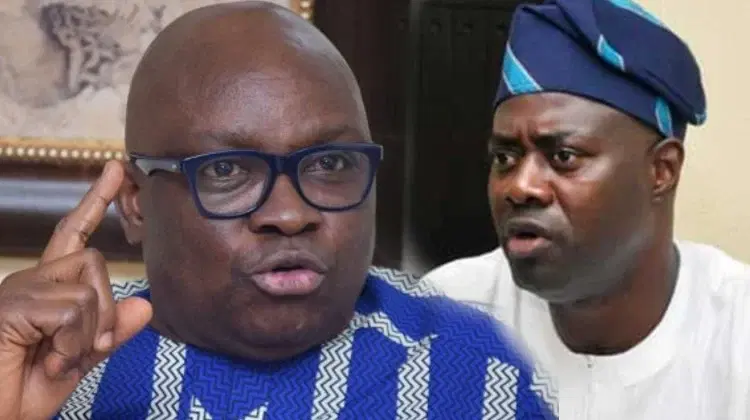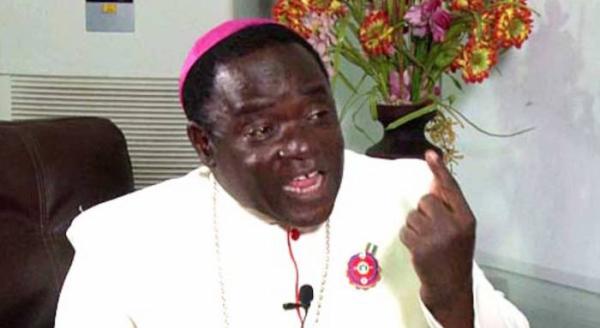
Ahmed Kuru is the managing director, Enterprise Bank Limited. In this interview, he highlights his achievements at the bank during his three-year tenure. NSE ANTHONY-UKO captured it for our reporter.
The Asset Management Corporation of Nigeria (AMCON) recently announced the preferred and reserved bidders for Enterprise Bank Limited, bringing an end to the bridge status of the bank. How do you feel?
I am glad that the process has come this far and we now know who the winners, in terms of the preferred and reserve bidders, are. This is a clear indication that the end of this bridge phase of the bank is imminent.
At the same time I am also satisfied with the outcome because it means that we, the board and management of the bank, have been able to deliver on the assignment given to us by the AMCON within the shortest possible time. That assignment was to reposition the bank and make it a going concern such that it will be attractive to investors. Right from the beginning when we came on board, we knew our assignment was for a short period of time. As you know, our tenure was to last for two years and Enterprise Bank was born on August 11, 2011. What this means is that we ought to have signed out on August 2013.
However, the announcement of Heritage Bank Limited as the preferred bidder has brought that journey to a beautiful end. I am happy that the entire process went according to how the AMCON planned it.
What are the challenges you encountered during the sale process?
It will not be totally correct to say there were no challenges during the entire process. Yes, there were initial difficulties, but because they were anticipated we were able to successfully manage them in such a manner that our business was, more or less, not affected.
Essentially, the challenges had to do with the reaction of the general public, customers and staff when the divestment process was announced. From the very beginning, the AMCON made it very clear that the bank, by its bridge nature, will be sold to interested investors at a certain point. When the exercise was to begin, it announced and every step and processes involved – the appointment of financial and legal advisers, the call for Expression of Interests (EOIs) by bidders down to the announcement of the results were clarified.
The reaction from customers was different immediately the divestment exercise was announced. A little number of them wanted to withdraw their patronage till they were sure that all was well while signing on new transactions met with a bit of resistance. However, we deployed a number of marketing communication strategies that succeeded in reassuring customers that the divestment exercise will not affect their transactions. One of such was the organisation of customer forums where we fielded questions from the customers, explained and reassured them that the exercise was, indeed, meant to serve them better. There were other customer engagement strategies, including regular media briefings, targeted at different levels of the bank’s stakeholders. We also intensively engaged our customers on a one-on-one basis at various levels. Our staff were equally and adequately primed through internal communication, town hall meetings and other bonding initiative platforms to remain calm; focused and dedicated to their work in order to convey the right attitude in their interface with our esteemed customers.
All said, these combined strategies made every bit of the activities during the exercise open for the awareness of every stakeholder and prompt. It has not been easy. Like I said earlier, the industry is hostile to any form of uncertainty and the elongated nature of the process has not helped matters. But we thank God and our staff for all the support.
You always said that one of the principal objectives of your administration is to deliver a sound and healthy bank to the new owners/investors at the end of your tenure. Where are you on that promise?
We did a lot of serious work when we came on board which I believe will endure any brand that is playing in a difficult economy like ours. The situation we met on ground was very bad, which was why the AMCON intervened in the first place. The first thing we did was to initiate a very strong corporate governance structure. The bank had a 16-member board of directors, made up of five executive directors in addition to the managing director and 10 non-executive directors.
We operated with very credible people at this level whose experience spanned banking, insurance, academia and public administration. The combination ensured the institution of a very strong corporate governance structure to avoid any abuse of process which for me was the strength of the institution. We insisted that there must be strong operational policies. In all we did, we made sure proper due process was followed.
The bank was not profitable at the time we assumed duties. Today, we have returned the bank to sustainable profitability. After the initial 5-month loss recorded in 2011, the bank has been making profit annually since 2012. We were able to grow the balance sheet by about 36 per cent over the years. Even with the introduction of the policy of 75 per cent Credit Reserve Ratio (CRR) for public funds by the Central Bank which led to the relinquishing of such funds from our system, we still have been able to grow deposits by over 30 per cent since we took over. Our asset quality has improved greatly, leading to the significant reduction of non-performing loans (NPLs).
The bank has been rebranded and is more recognisable in the league of banks. We have been able to give the institution a new corporate look and feel. Our branches and other touch points wear new look that cannot but be noticed by the man on the street. All our customers’ touch points and service platforms have been upgraded for better service delivery. We made huge investments in upgrading our channels and technology to meet the demands of modern day banking. We have continued to ensure that our customers enjoy convenient and stress free banking as our staff have been retooled and reoriented to better align with the vision and values of the bank.
We recognise that our staffs are the most important asset that we have and we have invested in their up-skilling and cultural renewal to enable them competently deliver the service objectives of the bank. Their welfare has also been of importance to us to the that extent we have ensured that their total welfare package is competitive. Unlike what it was before now, the bank now attracts very good staff from the industry.
So as to your question with regards to whether we came close to the promise we made to hand over a sound financial institution to the new owners, I will say yes, we did. We have not destroyed value; as a matter of fact, we are leaving the bank with our heads held quite high.
After three years at the driver’s seat as the managing director/chief executive officer of the bank, are there things you would have done differently in the same circumstances?
Looking back retrospectively, I tell you that we were calculative with every decision we took for the overall good of the bank. We came on board as change managers but under a different arrangement. The whole essence of the intervention/investment in the first instance was to safeguard staff employment, guarantee depositor funds and ensure business continuity.
It was a tricky balancing act. We started with a highly demoralised workforce who had seen five managements within a space of six to seven years. It was like a 15-year “start-up” business. We were retooling and at the same time competing. It was like joining a race with your hands tied to your back. We had to deal with the unconventional way by beginning to untie our hands, all in keeping faith with the government contract with the public. We are pleased that we delivered on the government promise of preserving value.
Also to change the direction of the bank and at the same time deal with the issue of rebranding the bank in an industry that is hostile to mediocrity was a big challenge. One of the areas one should pay attention to in our industry is the cost structure. Again, unfortunately, we had to deal with the need to invest in technology, human capital and rebranding in a situation where you are not making money.
Another tricky balancing act was on how to watch your cost to income ratio. Therefore, we hit the ground running, excessively pushing our people, and the fact that we were in the market did not help matters.
With the successful conclusion of the sale process of Enterprise Bank, what would you say is the direct impact on the banking industry and the economy vis-as-vis the situation that led to the intervention of the Nigeria Deposit Insurance Corporation (NDIC) and the eventual takeover of the bank by AMCON?
A number of positive impacts come to mind, particularly, when viewed against the circumstances that gave birth to the institution and two others like it in 2011. You would recall that these banks were in terrible state and would have been liquidated as a result of serious erosion of their shareholders’ funds. Liquidation would have led to loss of huge customer deposit and heavy job losses, which would also have impacted the economy negatively. But then, the Federal Government allowed the establishment of an institution like AMCON, which bought up all the toxic assets that weakened those banks and reflated them with fresh capital while providing them with new boards and management with a charge to run them profitably. As such, the successful conclusion of the divestment exercise is a reassurance that Nigeria and Nigerians are capable of providing solutions to our economic challenges if allowed a level playing field. So many families have been saved the pains of suffering the loss of their sources of livelihood. Interestingly the institution is sold to an ongoing entity, which means quite a lot will be preserved in the process of repositioning the institution to meet these objectives.
Are there any regrets, whatsoever, that you may have concerning the sale?
We have no regrets because like I said earlier, we were sent here by AMCON for a termed or tenured assignment with set objectives of positioning the bank for sale. That was the passion with which we operated. Nevertheless, the reality of the situation has always been there, which somehow cushions the pain. Right now, my greater happiness is that we delivered on that assignment with the successful completion of the sale process. With the emergence of the new owners, I believe and pray that our modest successes will even be sustained and consolidated into a giant brand. That way, our little effort will always find a place in the new brand’s history.
What would be your advice to your staff; other bankers and young Nigerians who obviously would want to look up to you and draw some inspiration and motivation from your accomplishments both in life and the profession?
There are two things that should be very fundamental in the mind of any banker that is interested in retiring as a professional banker and not a businessman. These are service and integrity. Service will entail you being professional in your approach and putting all measures in place to satisfy your customers, who are primarily why you are in business in the first place! It is something that should come from inside but which will be aided by technology and innovation. If you do not have the service attitude, no technology will help you. Secondly, banking is a conservative old profession. Your customers must see you as someone they can trust without any strings attached. The moment you compromise your conduct as a banker you have lost it. It is a conflict if you are a banker and also at the same time competing with your customers, at times stealing their ideas. So I advise them to be interested in self development with emphasis on service and integrity.
Oil Prices: FG’s Revenue to Drop By 7% – Analysts
The federal government revenue for October will drop by seven per cent and the external reserves is expected to drop below $37 billion if the oil prices continue to hover around $90 per barrel, analysts have predicted even as they expect September inflation figures to drop from 8.5 per cent.
Nigeria’s external reserves, which had risen to $39.7 billion, has continued to take a beating in the past weeks, standing at $39.4 billion as at October 3, 2014, as the CBN dipped into it to stabilise the value of the naira amidst declining oil prices.
According to analysts at the Financial Derivatives Company (FDC) Limited, the fall in oil prices could spell major economic problems for Nigeria.
The FDC monthly Economic Bulletin analysed that at the current prices of approximately $90 per barrel, government revenue for October will drop by seven per cent to $7.03 billion. The fiscal deficit will rise to $1.39 billion, about 3.3 per cent of the gross domestic product (GDP), while the external reserves will deplete to $36.83 billion.
At the current official exchange rate and RDAS foreign exchange sales, the naira will be mispriced by approximately 2.9 per cent in October. The FDC analysts noted that a further decline of oil prices to $80 per barrel, which is just $2.5 above the federal government’s budget benchmark oil price of $77.5 per barrel for 2014, would cut government revenue to $6.25 billion, push the deficit to 3.7 per cent and deplete external reserves further to $33.36 billion.
“At this point, the naira will be mispriced by 3.9 per cent if the Central Bank of Nigeria (CBN) continues to defend it at the expense of the external reserves. The Federal Accounts Allocations (FAAC) disbursements will nosedive and more money will be needed to fund the deficit. Erosion in reserves will put the currency under immense pressure, and the CBN is likely to further tighten monetary conditions and bring the issue of currency adjustment to the front burner,” the analysts said.
However, the International Monetary Fund (IMF), in a communiqué issued at the weekend, has advised that developing economies allow market forces to determine the value of their currencies and concentrate more on building their reserves.
The IMF communiqué stated that “exchange rates should be allowed to respond to changing fundamentals and to facilitate external adjustment” while advising that “emerging market and low income developing economies should rebuild fiscal buffers where needed, including through revenue mobilisation.”
Speaking recently, the CBN director, Charles Mordi, had noted that the CBN “will do the right thing” if it becomes obvious that it can no longer defend the naira.
He stated that “apart from not meeting your production quota, oil price is declining, we are not accumulating enough reserves, the excess crude account has been drawn down even though it had be brought up to about $4.5 or thereabout. We recognise that at the CBN it is a challenge and we have always said that we are not going to defend the naira at all cost.”
Analysts at the FBN Capital believe that the CBN still has the capacity to continue to defend the naira as it continues to increase its foreign exchange sales to the market, through direct interventions and its twice -weekly retail auctions. Auction sales accelerated to $3.10 billion in September from $2.82 billion in August, although the last sale of the month on September 29, was unusually high ahead of the public holidays on October 1, 6 and 7.
“We are approaching dangerous territory for the oil price (and thus the naira). However, we see limited further downside and think that the CBN will be able to hold the line on the naira exchange rate. Reserves as at end-September still provided more than nine months’ merchandise import cover at 2013 levels.
This would be viewed as adequate, were it for Nigeria’s hearty import appetite and still limited productive base,” the FBN Capital analysts said.
Meanwhile, ahead of the release of the September inflation figures by the National Bureau of Statistics on October 16, analysts foresee a drop in the consumer price index for the first time since February 2014.
Analysts at FSDH Merchant Bank and FDC say the expected moderation is associated with an increase the supply of food commodities, even as prices of most global commodities have declined, which is expected to reduce Nigeria‘s import bill.






















